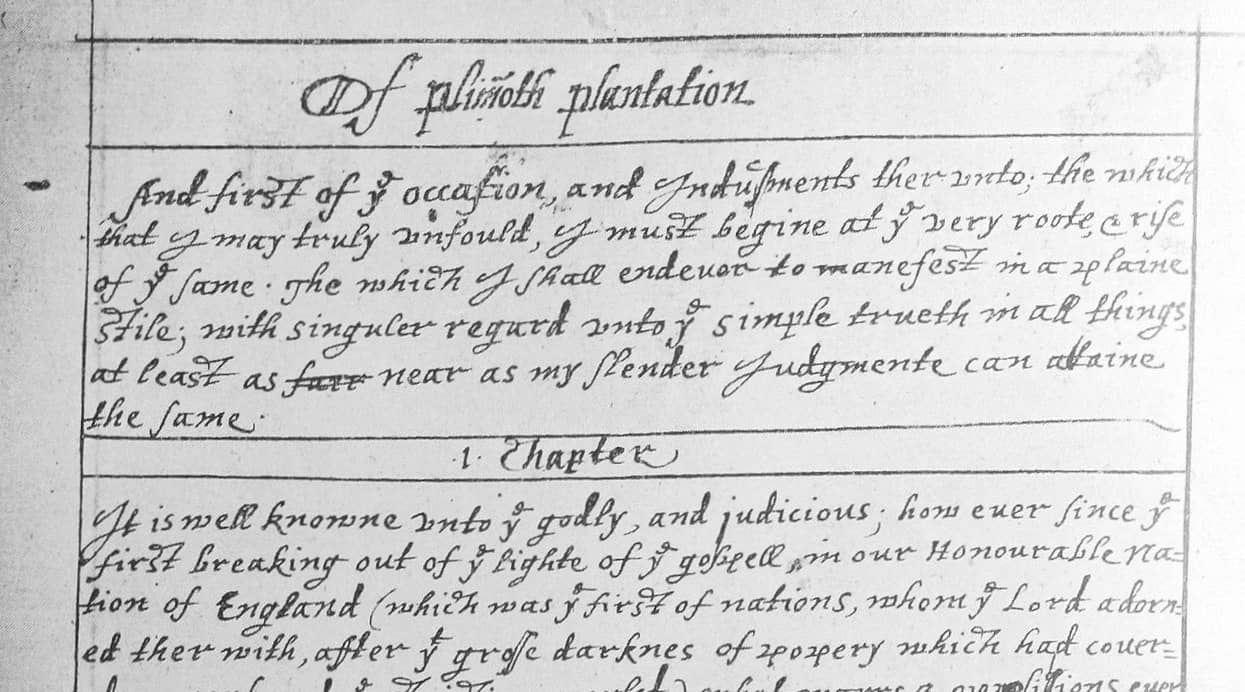This material also corresponds to footnote #25 in the PDF and printed booklet editions of “Ditching Socialism in the New World,” and to footnote #25 in Heed the Pilgrims.
In his account of the Pilgrims’ journey to the New World and their settlement at what would become known as Plymouth, Massachusetts, William Bradford (1590-1657) writes,

Harvest time had now come, and then instead of famine, God gave them plenty, and the face of things was changed, to the rejoicing of the hearts of many for which they blessed God. And the effect of their particular planting was well seen, for all had, one way or another, pretty well to bring the year about, and some of the abler sort and more industrious had to spare, and sell to others, — in fact, no general want or famine has been amongst them since, to this day.
Bradford, William. Of Plymouth Plantation (p. 124). Portcullis Books. Kindle Edition. Book II, chapter IV
Paraphrase/Summary as presented in “Ditching Socialism in the New World”:
After the newcomers joined us, it wasn’t that long until it was time to harvest our crops. We reaped a bountiful harvest that year, certainly because God had been good to us, but also because the members of the colony had worked hard in both planting and harvesting. In fact, we enjoyed more than enough! Some members of the colony even were able to benefit others because they had enough to sell. Also, through their transactions, they managed to benefit themselves as well by making a profit. Having worked hard, they deserved it!
With God’s help, we had turned a corner!
This material relates to footnote #10 in the article “Ditching Socialism in the New World.” It relates as well to footnote #25 in the PDF and printed booklet editions.
top image: Front page of William Bradford’s manuscript for Of Plimoth Plantation
Paraphrase copyright © 2019 by B. Nathaniel Sullivan. All rights reserved.
